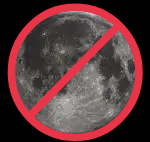Wouldn’t be rare for someone in Québec to ask “Comment tu t’appelles?” but it’s generally understood that this is “colloquial” French, whereas “Comment t’appelles-tu?” is the correct way to say and write it in French.
It’s generally better to learn the “correct” language before you start applying colloquialisms.
French people say « Comment tu t’appelles ? » even « Tu t’appelles comment ? » very often in spoken language
Huh? I don’t really get the joke; your french needs practice?
Also, is s’appelle a Quebec thing? Or does it serve a different purpose?
deleted by creator
Bienvenue au français
tout est dans les détails…good luck with word order thing, changes with the side of The Atlantic you’re on(among other things)
Welp, that’s rough. Seems like a pretty foundational thing for the bird to forget.
Are you asking why it’s “Comment t’appelles-tu?” rather than “Comment appelles-tu?”
No. T’appelle vs S’appelle.
The s in « s’appelle » is the (reflexive) pronoun « se », whereas the t in « t’appelles » is « te ». It’s the difference between “what does he call himself” and “what do you call yourself.”
The Quebec thing would be « comment tu t’appelles-tu ? » where the second « tu » is a question marker, not a pronoun (but also I don’t think I’ve ever heard that form used for this question).
Wow! Great answers from you and !viridian@sh.itjust.works
Gonna need some time to digest this properly.
I had this exact thing happen in Duolingo. I remember being annoyed, because in school I had learned to say “comment t’appelles-tu” but Duolingo taught me “comment tu t’appelles.” Then it seemingly randomly switched back to the original one I knew, like I should have been using that the whole time.
What happened I think, is we left the “s” off of the end, so Duolingo marked it as wrong, but rather than add the “s”, it gave a different correction (the more proper way to say it). If you had put the “s” on the end, it would have been accepted as correct.
Wrong conjugation is all.
C’est quoi ton blaze ?



